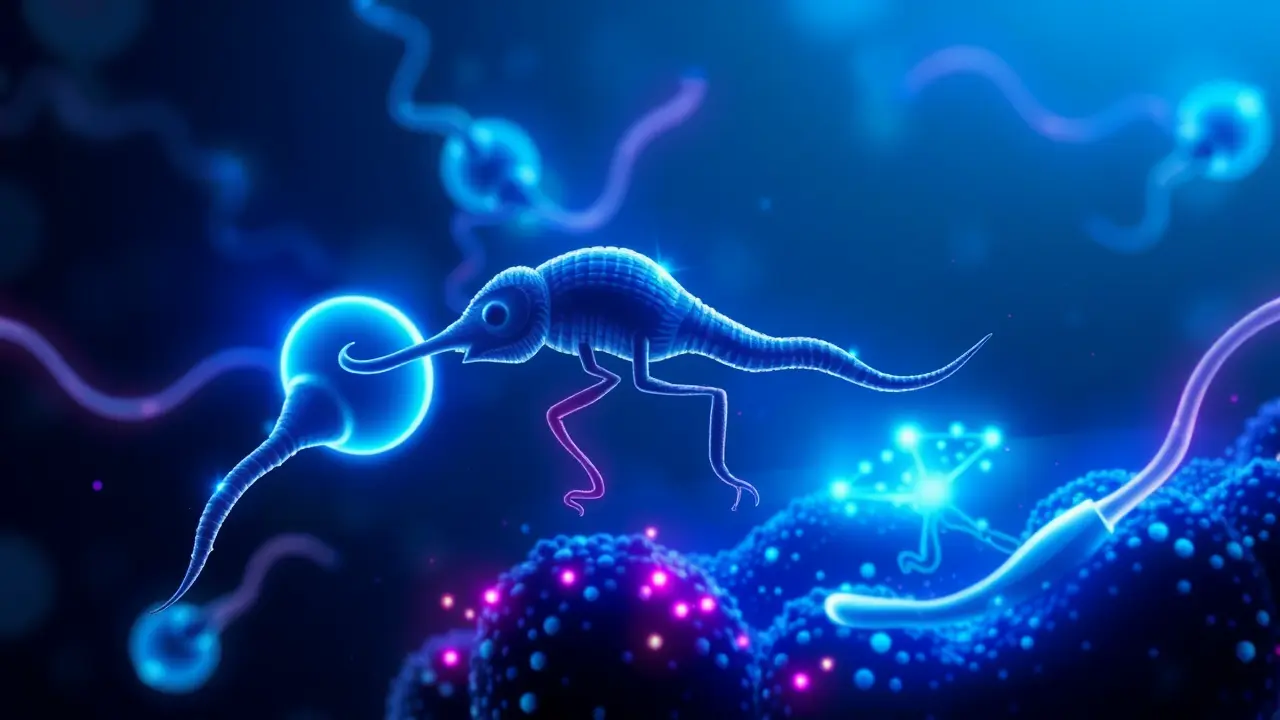
SciencebiologyGenetics
Common pesticides may cause testicular damage and lower sperm counts
RA
Rachel Adams
10 hours ago7 min read3 comments
A comprehensive decade-long review conducted by researchers at George Mason University has unearthed a deeply troubling pattern linking the world's most ubiquitous class of pesticides—neonicotinoids—to significant harm in male reproductive health. This systematic analysis, which meticulously examined 21 separate animal studies, presents a consistent and alarming narrative: exposure to these agricultural chemicals is correlated with a stark decline in sperm quality, profound hormonal disruption, and tangible damage to testicular tissue.To understand the gravity of this finding, one must consider the sheer scale of neonicotinoid use; these are not niche products but the most widely deployed insecticides on the planet, soaking into our soil, water systems, and the very fabric of global agriculture, from vast cornfields in the American Midwest to fruit orchards across Europe and Asia. The mechanisms of this assault on male fertility are as insidious as they are devastating.These chemicals are designed to attack the central nervous systems of insects, but their neurotoxic properties appear to cross species lines, interfering with the delicate endocrine orchestra that governs testosterone production and sperm maturation. Picture the testes not just as organs of reproduction, but as intricate biological factories requiring precise hormonal signaling; neonicotinoids, the evidence suggests, are throwing a wrench into these精密works, leading to a cascade of failure.This isn't merely a laboratory abstraction. The decline in human sperm counts has been a documented global crisis for decades, a silent epidemic often attributed to a cocktail of modern lifestyle factors.This research forces us to confront a potent and pervasive environmental contributor that has, until now, flown largely under the public health radar. The implications ripple outward, touching on food security, economic stability for farming communities, and the very continuity of ecosystems, as these pesticides are also implicated in the catastrophic collapse of pollinator populations.We are essentially poisoning the wellspring of life itself in our pursuit of agricultural yield. While regulatory bodies in the European Union have taken tentative steps by restricting certain neonics, the United States and other major agricultural nations have been far slower to act, often capitulating to powerful agrochemical lobbying efforts that dismiss animal studies as not directly conclusive for humans.Yet, the precautionary principle—a cornerstone of ecological ethics—demands we heed these warning signs. The animal data provides a crucial canary in the coal mine, a biological red flag we ignore at our peril.As a biologist who has long documented the interconnectedness of environmental and human health, this feels like a pivotal moment. We are adding a significant, data-driven piece to the puzzle of a wider fertility crisis, one that compels a urgent re-evaluation of our chemical dependency. The path forward requires a steadfast commitment to sustainable agriculture, investing in integrated pest management and organic practices that nurture the land rather than deplete it, ensuring the health of future generations is not sacrificed for short-term harvests.
#featured
#pesticides
#neonicotinoids
#male reproductive health
#sperm count
#testicular damage
#hormonal disruption
#environmental health
Stay Informed. Act Smarter.
Get weekly highlights, major headlines, and expert insights — then put your knowledge to work in our live prediction markets.
Related News
© 2025 Outpoll Service LTD. All rights reserved.
